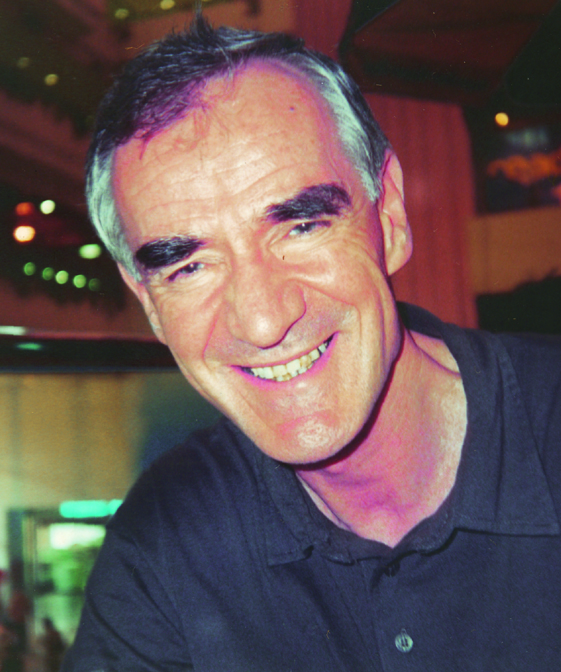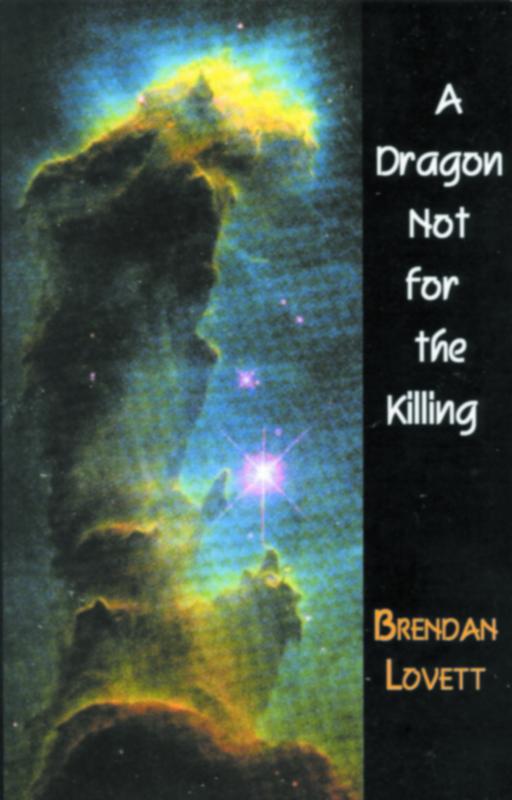A Dragon Not For The Killing
By Brendan Lovett
 Fr. Brendan Lovett was interviewed by the Far East on his book A dragon not for the killing. Fr. Lovett is one of the leading theologians in Asia and this study on his thoughts on ‘consumerism’ will reward the reader with some very valuable insights. You may have to read it twice carefully, but it is worth it.
Fr. Brendan Lovett was interviewed by the Far East on his book A dragon not for the killing. Fr. Lovett is one of the leading theologians in Asia and this study on his thoughts on ‘consumerism’ will reward the reader with some very valuable insights. You may have to read it twice carefully, but it is worth it.
Q: What are the main issues you address in your most recent book ‘A Dragon not of the Killing?’
A: There is really only one issue unifying the whole book. It is the effort to clarify authentic human development. For over 30 years I have grown in the conviction that the meaning given to development in our times is deeply mistaken. We have mis-defined what is humanly desirable. The prevailing ‘wisdom’ about how to achieve happiness and fulfillment is mistaken.
Q: What leads you to this conclusion?
A: Two things in particular, the impoverishment of so many people in our world and the rapid destruction of our environment. These are consequences of the modern process of development.
Q: You imply that nearly all of us have bought into a mistaken idea of progress.
A: Yes. While the current language of ‘development’ dates from 1949, the underlying trend goes back further. For centuries the Western world has been moving towards making economic value the dominant value, at the expense of a whole range of other essential human values. There is an almost total contradiction between what is promoted by religious value and those of a culture where economic value is consistently given unquestioned priority. Within such a situation, a given religious tradition will have either a radical existence or a miserable one.
Q: One suspects that not too many people see it that way. In the end who decides what is ‘good’?
A: The deeper question, surely, is how we come to decide about any good. While people rightly react against an imposed universalizing morality, it will hardly do to glorify difference as if it were simply arbitrary. That could easily lead to seeing life as a game where you make your own choices but don’t face up to the reality of a world which is dominated by one definite value system. And this system is creating a world where many must live in misery.
Q: Do you believe that what is presented as progress is often in fact impoverishment?
A: Yes. There is no such thing as automatic progress. Economics – or any other social system – should not be allowed to operate as an unquestioned system. It has to be integrated within what cultural process determines as other priorities – its effects on people and environment, for example. Today we have four trillion dollars around the world at electronic speed, “controlled” only by the gambling whims of investors, and effectively determining the life and death of millions of human beings.
Q: When faced with realities like that many good-willed people feel helpless. What can they do?
A: First of all we must believe that we were born to “see through” things, that this is our dignity and right.
Secondly, perhaps, we must believe that we were born to “see things through” and that we do this by commitment to the only thing we have going for us as human beings, the ongoing self-correcting process of learning. When faced with a major, long-term “mistake” we do, of course, find it very disconcerting to put it mildly. What we need most is the courage to inform ourselves about, then to live with the painful knowledge of the harm that is being done until such time as the pain empowers us to discern what steps need to be taken.
Because a totalizing economic system dominates everything, especially the media, people are bombarded morning, noon and night by only one version of what life is meant to be. It is very difficult to find space for alternative thinking. Many people understandably cave in to the myth of “This is the way things are”. We need both compassionate understanding of our predicament and the courage of hope, born of a belief in the life that is in us.
Q: You say that the acceptance, even unconsciously, of the priority of economic values, affects the way we practice our religion. How?
A: If our starting point is “This is the way things are” then our understanding of all of our religious celebrations and symbols will tend to be quietly adapted so as to be compatible with this unchangeable situation. To this extent, the symbols will tend to be emptied of their real meaning. Faith involves accepting responsibility for life in our own time and place and the refusal to take on this responsibility is the death of what religious traditions have meant by faith. Often religious believers who with good reason refuse to allow the importance of the living God to be relativised in their lives are today written off as ‘fundamentalists.’
Q: This is particularly true when political issues are under discussion. There are those who say that what they see as religious arguments have no place in political decisions.
A: All great religious traditions can, in the phrase of Nicholas Lash, be read as “protocols against idolatry”. Religion becomes highly relevant to political or economic social systems that have become idolatrous by being placed beyond the demands of justice.
Recently Samuel Huntington claimed that future wars would be the result of “clashes of civilizations” since the ideological wars are over and there is now only one economic system operative globally. This is the sort of theory that emerges when economics is given absolute priority. To me it seems extraordinarily perverse to see cultural pluralism as the cause of our problems. It serves to mask the real cause of deep tensions in our present world, the manner in which the workings of an uncontrolled economic system is undermining human communities everywhere.
Q: You say culture is the central element. What do you mean?
A: I am not thinking about the sort of things that fascinate tourists. They are the products of culture. In speaking of culture, I refer to the process, the unique activity whereby humans realize themselves in their naming of the world and in deciding for themselves what is humanly worthwhile. Culture is undermined and people as people trivialized when we allow someone else to dictate the meaning of things to us, to tell us, for example, that the meaning of life lies in consuming more and more.
Q: Where does Christianity fit into this world that you describe?
A: If my basic analysis is correct, the answer may well be that it does not! There is no given place for it. We, rather, must create the space for it through living our lives uncontrolled by the fear of death. We must believe in the importance to our world of our struggle for authenticity. The real hope is that people might pay attention to their deepest feelings, feelings like emptiness, and respond to them. Our Christian symbols tell us that we are a ‘remembering’ people. We must resist those who urge us to forget the story of the suffering of others, to dedicate ourselves to self-interest, to become insensitive to the world around us.

Q: A common argument today is that goodness is not linked to being religious.
A: Perhaps that turns on what is meant by “being religious”. The kind of religion that seems much in demand in the West today has been named “pro-religious godlessness” by J.B. Metz. He sees people as still enthralled by religious myths and symbols, yet what these promote is, not happiness, but avoidance. It is as if we are looking for comfort rather than a relationship to Mystery.
Our present sense of the value of the human person did not just fall out of the sky: we are indebted to the Christian tradition for it. It will not survive the elimination of God from our thinking.
The commodification of everything comes to include people. For the commodity market we are all easily replaced. People who cannot see the mystery at the center will find difficulty in sustaining their relationship to the mystery in each other.
Fr. Brendan Lovett lectures in theology in Manila. He has been a lifelong student of the writings of Bernard Lonergan. He is the author of several books.
